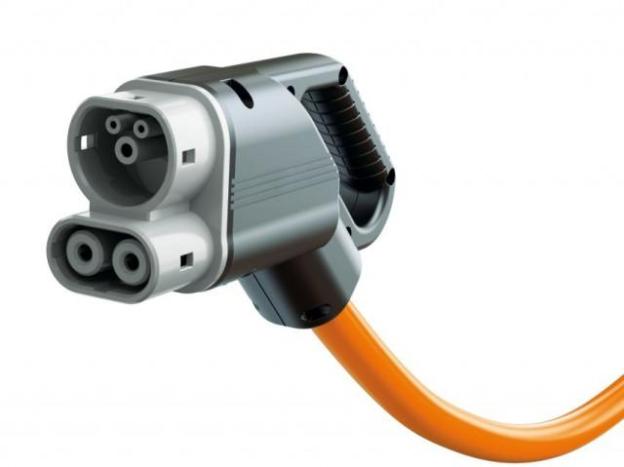 For most people, the car is the most convenient form of transportation. That has a lot to do with standardization; every car has the same controls, so despite the plethora of models a common infrastructure and skill set could be constructed around the modern car. With its alternative form of propulsion, the electric vehicle (EV) requires a rethink of certain details, like the charging ports the cars plug into. Wouldn’t it be inconvenient if your gasoline-powered car couldn’t fill up at a gas station because the nozzle didn’t fit in the filler?
For most people, the car is the most convenient form of transportation. That has a lot to do with standardization; every car has the same controls, so despite the plethora of models a common infrastructure and skill set could be constructed around the modern car. With its alternative form of propulsion, the electric vehicle (EV) requires a rethink of certain details, like the charging ports the cars plug into. Wouldn’t it be inconvenient if your gasoline-powered car couldn’t fill up at a gas station because the nozzle didn’t fit in the filler?
Several automakers from the United States and Germany are working on the problem. The biggest names from those two countries recently endorsed a new charging system called DC Fast Charging with a Combined Charging System (the name might work better as an acronym). Audi, BMW, Chrysler, Daimler, Ford, General Motors, Porsche, and Volkswagen all approve of the new system, which means future EVs from these automotive giants could be equipped with it, getting DC Fast Charging with a Combined Charging System close to universality.
The first mass-produced cars with the system are expected in 2013. The carmakers are so enthusiastic about DC Fast Charging because it combines four different charging modes into one outlet. The system can provide: AC-charging, fast three-phase AC-charging, DC-charging at home and ultra-fast DC-charging at public stations. This will make EV owners’ lives a little less stressful, because wherever they pull over to charge up, a DC Fast Charging-equipped car should have the correct plug.
The new system will also work worldwide. You may need to buy an adapter in order to plug in your smart phone at a European hotel, but future EVs should be able to plug in no matter where they are. DC Fast Charging has the approval of the American Society of Automotive Engineers (SAE), while the European Association of Vehicle Manufacturers (ACEA) is making it mandatory on all EVs beginning in 2017.
The designers of DC Fasting Charging say the system increases charging reliability, which is important considering that irregular charges can damage a car’s batteries or leave it with less than a full charge. Several Tesla Roadsters that were left unattended had their batteries drained because their owners’ house current wasn’t providing enough voltage.
The new charger is also supposed to spur the development of an EV charging infrastructure, presumably because its universal design. Other factors may limit electricity’s appeal, but having a universal plug in each EV is a step in the right direction. It’s just one less thing that people have to think about when buying a car.
It took the internal combustion automobile decades to reach the current level of standardization. A Ford Model T did not have a clutch, brake pedal, gas pedal, and sift lever; that layout came later. It even took car companies several years to agree on the “P-R-N-D-L” markings for automatic transmissions. EVs are going through the same process now, and if DC Fast Charging with a Combined Charging System catches on, major hurdle will be cleared. They just need to think of a better name.
Editors' Recommendations
- Should you buy a used EV? Maybe, but it’s complicated
- Audi Q6 e-tron ushers in the automaker’s next EV phase
- Porsche’s most powerful production car is an EV
- Here’s how Ford will give EV customers Tesla Supercharger access
- 2024 Chevrolet Equinox EV: price, release date, range, and more


